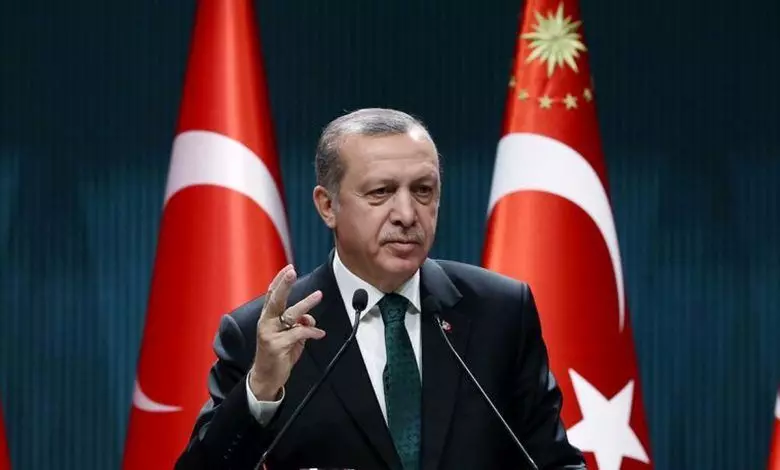Challenging battle ahead
As Türkiye goes to polls, Erdogan will face stiff competition from a united opposition due to his ‘economic mismanagement’ and ‘tardy response’ to the recent earthquake

Türkiye goes to polls on May 14, seen as the most challenging election for Recep Tayyip Erdogan, who is seeking a third consecutive term as President after having three stints as Prime Minister. Besides presidential polls, elections would also be conducted on the same day for 600 parliamentary seats.
Erdogan, 69, is facing a tough test in this election because of public outrage over rising inflation and his handling of the February 6 devastating earthquake in southern Turkiye that killed over 50,000 people, levelled cities and left millions homeless. He has won five parliamentary elections, two presidential polls and three referendums in the past becoming the longest-serving leader of the country. He has even faced a military coup.
For the first time in his two decades of rule, he is facing a real challenge in the form of an anti-Erdogan majority and a united opposition bloc. In a highly polarized atmosphere, electorates would be voting to express their views on issues that range from Erdogan’s controversial economic policies to regional issues and the government’s slow response to the earthquake.
More importantly, their votes would decide if they want to continue the mandate for Erdogan or give the opposition coalition a chance with its promise to return to the rule of law and the parliamentary system. Most of the provinces struck by the February earthquake were strongholds of Erdogan and his Justice and Development Party (AKP). Supreme Election Council (YSK) chief Ahmet Yener recently said that at least 1 million voters in quake-hit zones are unlikely to vote because of displacement.
Erdogan is facing an opposition-aligned behind Kemal Kilicdaroglu, nicknamed the “Turkish Gandhi'', the leader of the Republican People’s (CHP) and presidential nominee for the six-party National Alliance bloc. The opposition alliance includes some of Erdgan’s former allies, liberals, conservatives and nationalists. Türkiye's pro-Kurdish party also announced support for Kilicdaroglu, 74, although it is not officially in the opposition alliance.
Most of the polls show Erdogan behind the main opposition alliance. His conservative party’s control of parliament through an alliance with the ultra-nationalist group Nationalist Movement Party is also under threat. Erdogan's popularity started declining even before the earthquake due to the economic crisis and concern among the masses over his autocratic style of governance, especially among the younger voters.
In power since 2003, Erdogan has developed a reputation for being an autocrat, prone to stifling dissent rather than engaging with critics and it is unlikely that he would change now. There has been democratic erosion under his leadership. Over the years, his government has virtually silenced dissent and detained critics, especially those from the pro-Kurdish Peoples’ Democratic Party (HDP) over alleged affiliation with the militant Kurdistan Workers’ Party (PKK), which Türkiye, the US and the European Union consider a terrorist organization.
The main concerns of the voters are the state of the economy and the damage caused by the earthquake. Even before the February earthquake, the country was struggling with rising prices and a currency crisis that in October saw inflation hit 85 per cent, impacting the purchasing power of the people.
Opposition is talking about introducing liberalizing reforms in terms of the rule of law, media freedoms and de-politicisation of the judiciary and promising to implement European Court of Human Rights decisions calling for the release of two of Erdogan’s well-known jailed opponents: the co-leader of the pro-Kurdish Peoples’ democratic Party Selahattin Demirtas and human rights defender Osman Kavala.
They have pledged to undo the legacy of the longtime Turkish leader and focus on strengthening democracy, easing a cost of living crisis and battling corruption. “Our democracy, economy, judicial system and freedoms are under heavy threat from Erdogan,” Kilicdaroglu, a former civil servant said in a campaign video. “I will put the state on its feet again and heal the wounds, and I will give back the joy of life to the people.”
He said if he wins, he'll return the country to a parliamentary system, undoing constitutional changes that allowed Erdogan to expand his powers. He also vowed to restore the independence of the judiciary, the central bank and the foreign ministry, which he and other critics say have sullied under Erdogan's leadership.
Erdogan's critics accuse him of over-personalizing foreign relations, weakening the diplomatic set up while his supporters maintain that he has boosted the country’s global stature. Erdogan is leaving no stone unturned to convince voters in his favour and has taken aim at his critics in a combative fashion.
Accusing the opposition of trying to take advantage of the human tragedy, he has made several visits to the quake-affected zone and has vowed rapid reconstruction and punishment to builders who skirted building regulations. He has also launched a number of projects and schemes beneficial to the people.
His attacks against the main opposition alliance have included accusations of seeking support from the outlawed Kurdistan Workers Party (PKK), which has been waging an insurgency since the 1980s in which more than 40,000 people have been killed. Kilicdaroglu, who has been supported by the pro-Kurdish Peoples’ Democratic Party (HDP), has responded by defending Kurdish rights and accused Erdogan of “treating millions of Kurds as terrorists.”
The writer is a former Editor of PTI and served as the West Asia correspondent. Views expressed are personal



